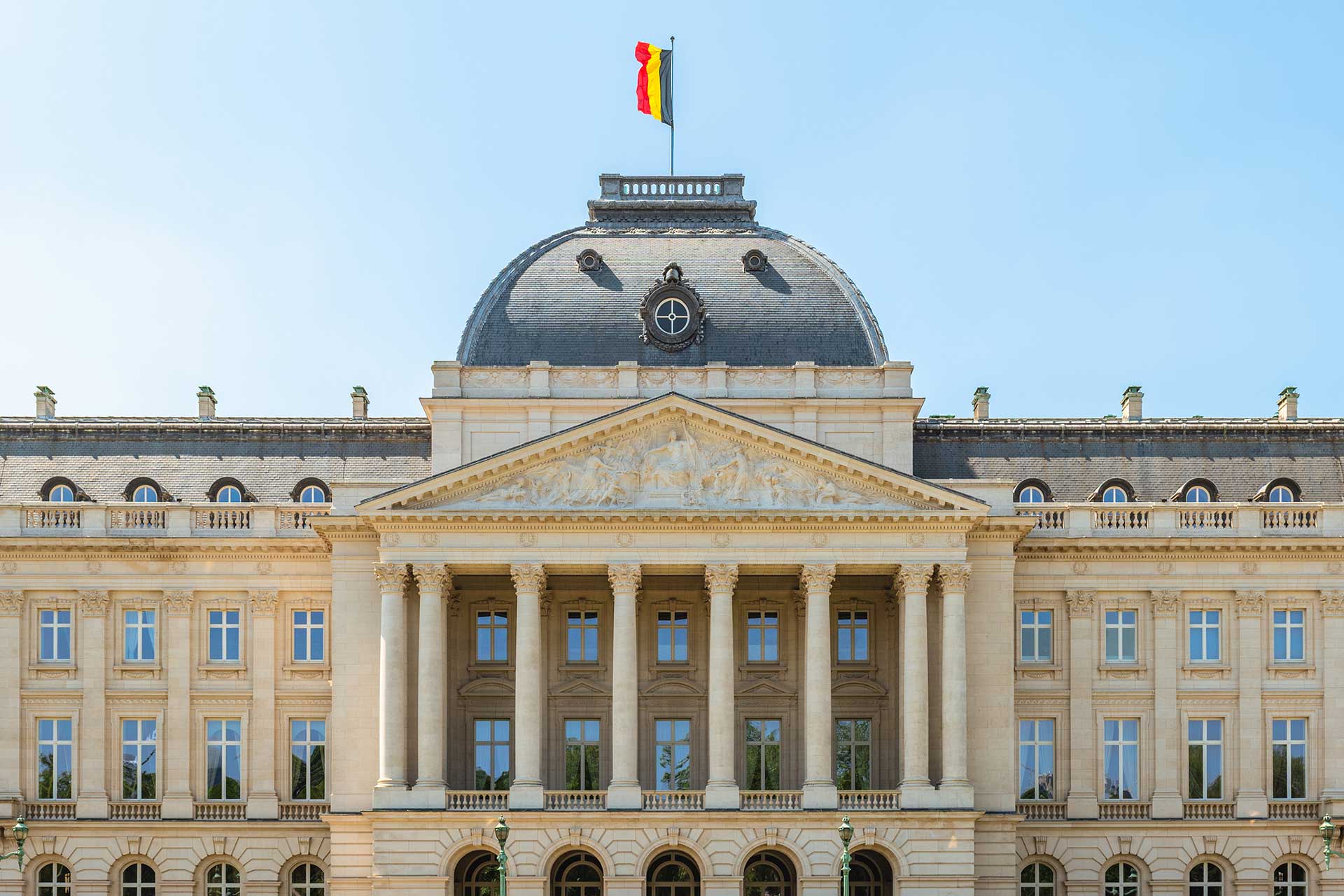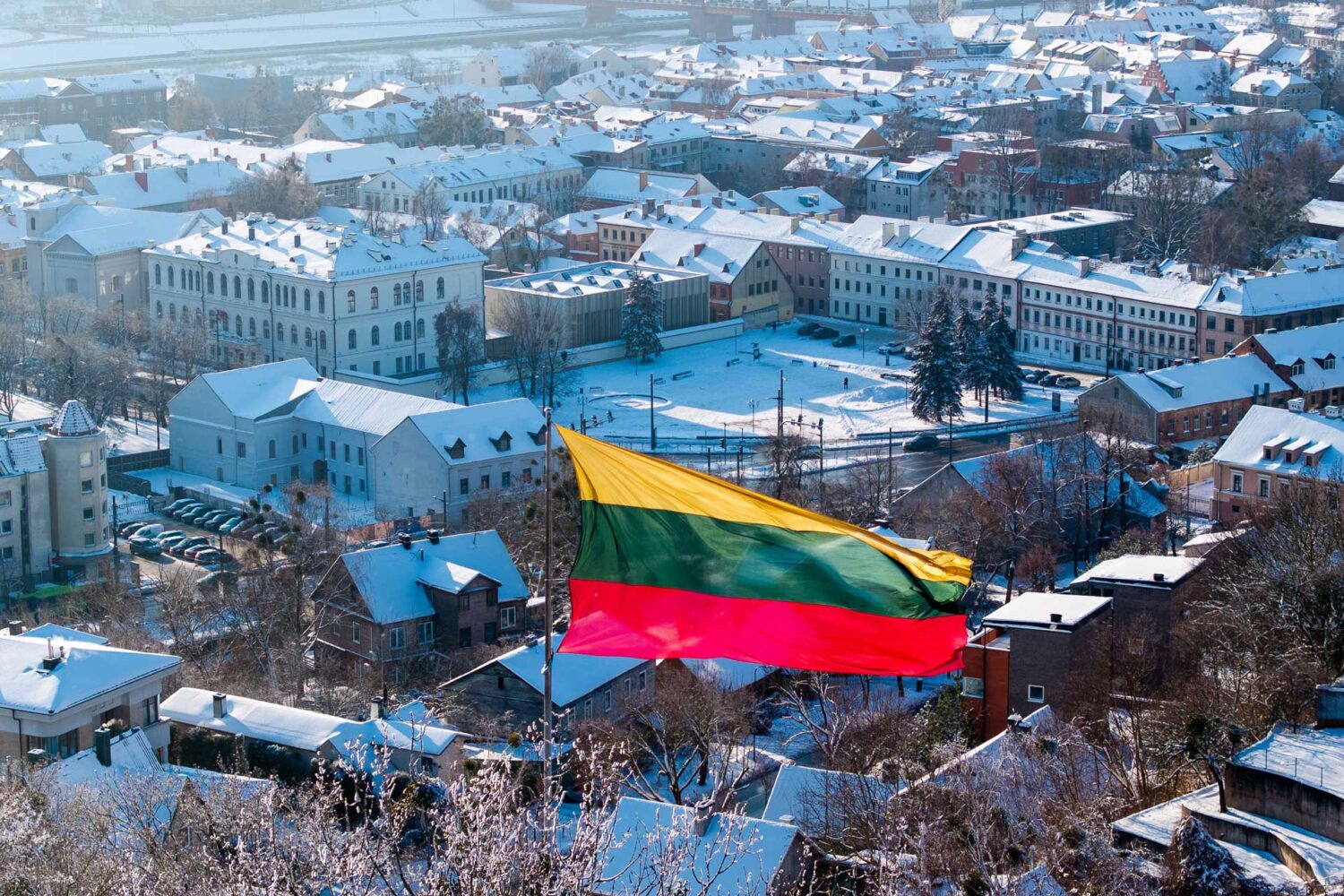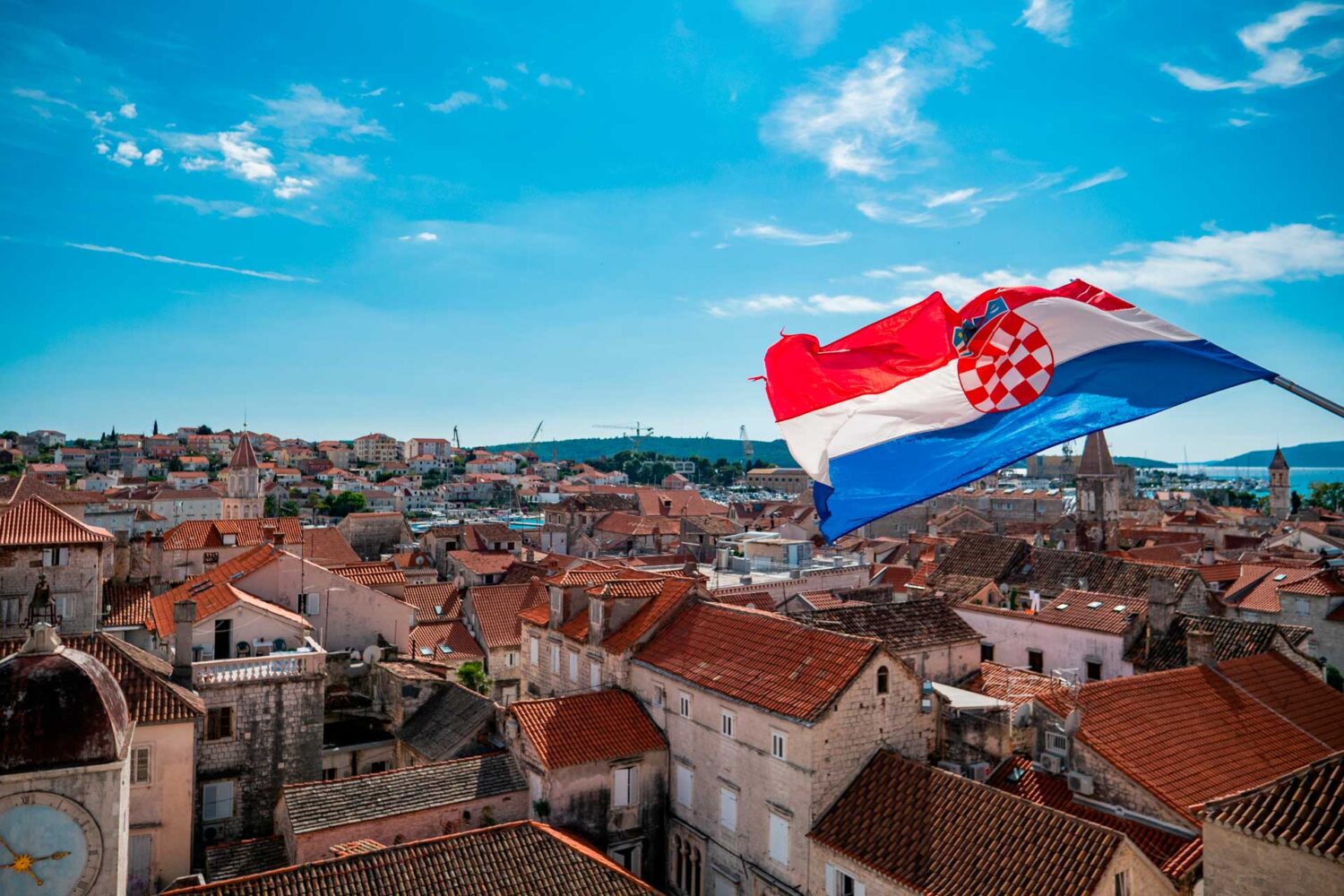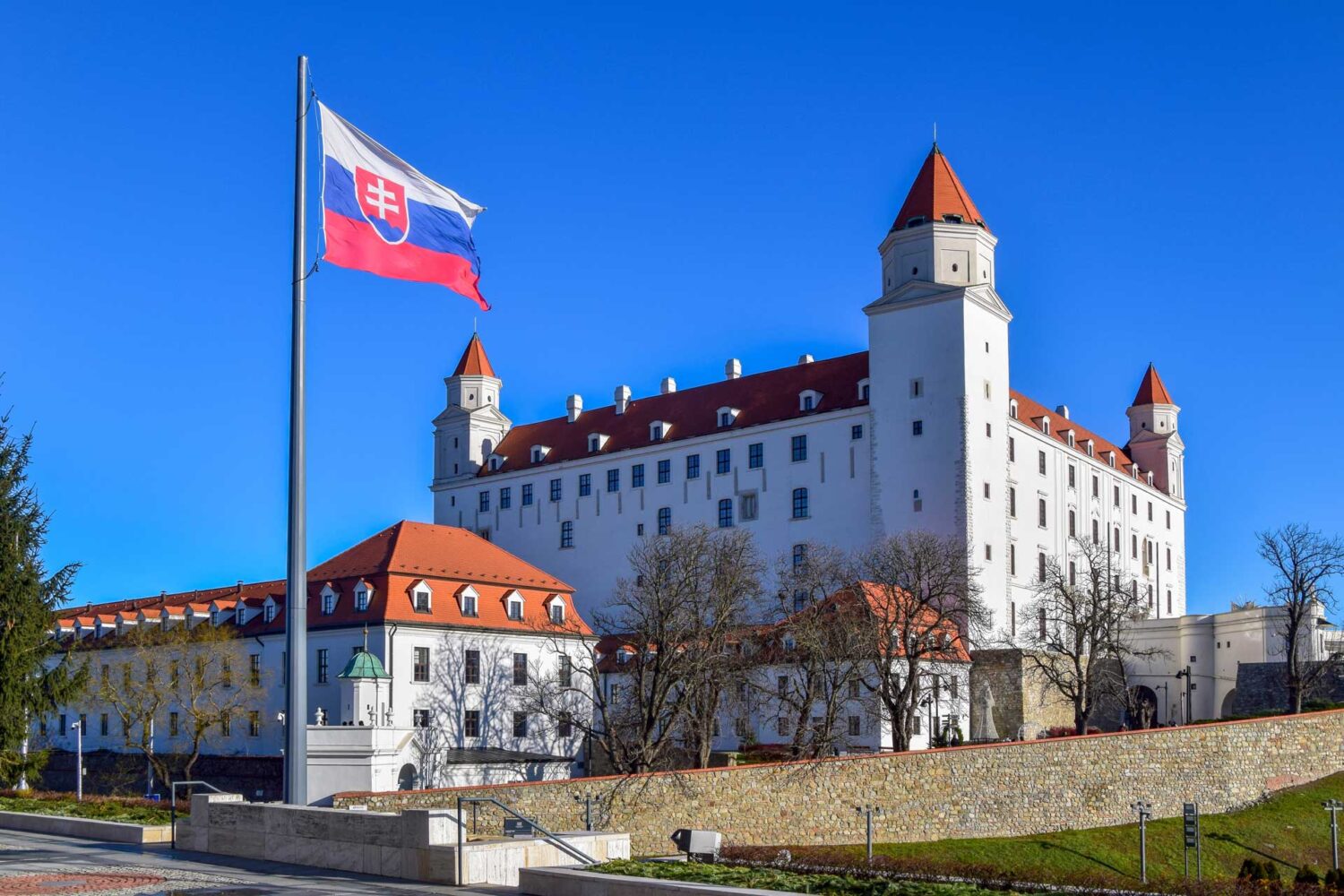Belgian citizenship is a person’s legal connection to the Kingdom of Belgium, which gives a full set of civil rights and state protection around the world. Thanks to the country’s membership in the European Union, a Belgian passport automatically grants its holder the status of an EU citizen and all related privileges. Together with the Belgian passport opens wide opportunities for free residence, work and business in Europe. In this article we will help to understand who is granted Belgian citizenship, how to get it and how long you have to wait, revealing practical aspects: the main ways of registration, legal requirements and terms of naturalization.
The immigration path to Belgium can be significantly simplified if you first obtain a passport of one of the EU countries under an accelerated program. For example, Romania and Bulgaria offer repatriation programs that allow you to obtain an EU passport with minimum requirements in just 1-2 years. After obtaining any other EU citizenship, it is possible to move to Belgium for permanent residence almost immediately, without a five-year waiting period. We recommend analyzing your personal grounds and consulting a lawyer to choose the best way to become an EU citizen.
What are the advantages of Belgian citizenship?
The Belgian passport is one of the three most “strong” passports in the world. By obtaining the citizenship of the country, you will become a full-fledged citizen of the EU with all the ensuing advantages, namely:
- Freedom to travel.
Belgians can visit about 175 countries around the world without visas, including all Schengen states for an unlimited period of time. - The right to live and work in the EU.
A Belgian citizen has the right to reside permanently in any EU country without a residence permit. Also, the European labor market opens up – you can legally work in any position without special permits, on a par with local residents. - Business and finance.
A Belgian passport allows you to do business throughout the EU without customs barriers, as well as to obtain loans and grants from European banks. Preferential rates on mortgages and other loans are available to citizens. - Social and health benefits.
Belgians are entitled to free or reduced tuition at universities in Belgium and other EU countries. They also have access to quality health care through insurance both in Belgium and throughout Europe. Citizenship provides full access to the social security system: benefits, pensions and other forms of state support. - Political rights.
Once you become a citizen, you can participate in elections – vote and even run for office. It opens up the possibility of holding positions in the civil service that are not available to foreigners.
Thus, Belgian citizenship significantly expands your rights and freedoms. But to take advantage of all the benefits, you must first go through the citizenship procedure. Let us consider what ways you can get a Belgian passport and what conditions you need to fulfill.
Check your chances of getting an EU passport through a simplified procedurе
Sign up for a free consultation to learn more from the experts at Mycitizenagency as soon as possible
How to obtain Belgian citizenship
According to the Belgian nationality law (the 1984 Nationality Code), it is only possible to acquire citizenship status on certain grounds. The main ways of obtaining a Belgian passport in 2026 include: by descent (blood right), by birth in the territory, through naturalization (residence), through marriage, restoration of lost citizenship, and for special merit. Neither buying Belgian citizenship nor obtaining it directly for investment is possible – there are no investment programs granting passports in Belgium. Let us consider each ground in more detail.
Citizenship by descent (born by a citizen) and adoption
A child’s nationality is determined by the nationality of the parents (jus sanguinis – right of blood). A child whose at least one parent is a Belgian citizen at the time of birth automatically becomes a Belgian citizen. This rule applies regardless of the place of birth: for example, Belgian children born abroad are also entitled to a passport by descent. An important nuance: if a Belgian parent was born outside the country, he/she should issue Belgian documents to his/her newborn child within 5 years, otherwise the right to citizenship by descent may be lost. Also, a child of Belgian origin who has not acquired any other nationality before adulthood may, upon application, acquire the status of a Belgian citizen.
A similar principle applies to adoption. If a foreigner under the age of 18 is adopted by a Belgian citizen, he or she automatically acquires Belgian nationality on the day on which the adoption decision takes effect. If a Belgian family wishes to adopt a foreign child born abroad, they must submit a request to the authorities within 5 years (until the child reaches the age of majority). If the child to be adopted has no other nationality or if at least one of the adoptive parents was born in Belgium, citizenship is automatically granted without any additional procedure.
Citizenship by birth in the territory (jus soli)
In Belgium, the principle of jus soli – acquisition of citizenship by birth – applies only under certain conditions and is not automatic. The birth of a child in Belgium does not guarantee a Belgian passport if the parents are foreigners.
Nevertheless, a child born in Belgium may be entitled to Belgian nationality if:
- one of the parents was also born in Belgium and has lived here for at least 5 years in the last 10 years;
- or the parents apply before the child turns 12 years of age, under the following conditions: both parents have been legally and continuously residing in the country for at least 10 years or at least one of them has permanent resident status at the time of the request.
There are similar rules for adopted children born in Belgium if the adoptive parents are foreigners residing in the country.
It is important to understand: giving birth in Belgium does not give a “passport by default”. This pathway is not suitable for accelerated citizenship if the family is not permanently residing in the country. Without strict conditions, even a birth on Belgian territory does not entitle a person to citizenship – making the “birth for passport” tactic unworkable in Belgian law.
Find out how to obtain citizenship faster
Naturalization (through residence)
Naturalization is the main mechanism for foreign citizens who have reached the age of majority to acquire Belgian citizenship. The process presupposes not only long-term legal residence in the country, but also real integration: knowledge of the local language, participation in social and economic life, and fulfillment of a number of other conditions.
As a rule, the path begins with obtaining a national visa of category D and applying for a residence permit on the basis of work, entrepreneurship, study or family ties. The first residence permit lasts from one to three years, depending on the type of stay, and can be renewed many times. After five years of continuous legal residence, the foreigner has the right to apply for permanent resident status, which in turn opens up the possibility of applying for citizenship.
Among the main criteria for naturalization: age from 18 years, the presence of a valid residence permit or permanent residence, the absence of serious violations of the law and full-fledged residence in the country for the last five years. In addition, proof of integration into Belgian society is a prerequisite. This requires documented proof of knowledge of one of the official languages – Dutch, French or German – at least at A2 level, as well as the presence of stable social and economic ties.
Integration is confirmed by various documents – for example, diplomas from Belgian educational institutions, certificates of completion of language or vocational courses, certificates of employment, tax returns. All this serves as proof that the applicant is not just living in the country, but is actively engaged in it.
In addition, most applicants must show economic self-sufficiency/contribution: paid employment or entrepreneurial activity. It is usually required to have worked officially for at least 468 days in the last 5 years or to have paid the equivalent taxes to the treasury. For spouses of Belgian citizens and parents of young Belgian children this requirement is reduced – half of this length of service (234 days) is sufficient, and in general, proof of income for them is not so strict. They are also not required to have a continuous professional activity on the territory of Belgium. It is important to note that naturalization in Belgium does not require an official renunciation of the former citizenship, so usually foreigners apply for a second citizenship, keeping their first passport.
The procedure of naturalization itself looks like this: first a foreigner needs to comply with the residency requirement (5 years of residence) and prepare the necessary package of documents. The application for citizenship is submitted to the municipality of your place of residence. The municipal registrar checks your file (usually within 30 days) and passes the case to the prosecutor’s office. The review takes up to 4 months – if the public prosecutor’s office does not issue a refusal within this time, the application is automatically considered approved. The registrar then enters you into the register of citizens and issues a certificate of naturalization. After that, the only thing left to do is to issue the citizen’s documents – an internal ID card and a passport. In general, it usually takes about 4-5 months from the moment of submission to the decision, if all the conditions are met and there are no delays.
Special cases of naturalization: Belgian law provides for some benefits. For example, persons with disabilities can apply for citizenship after 5 years of residence like everyone else, but are exempted from integration, language and economic contribution requirements (instead they attach a medical certificate). Stateless persons are eligible to naturalize after 2 years of residence. Children born and permanently residing in Belgium up to the age of 18 have the right to become citizens automatically without additional conditions, as they are de facto integrated. Moreover, when a parent naturalizes, his or her children up to the age of 18 are automatically granted citizenship together with him or her - it is sufficient to include them in the application form.
Citizenship through marriage to a Belgian citizen
Marriage to a Belgian citizen does not in itself confer instant citizenship, but it facilitates naturalization. A foreigner who is officially married to a Belgian citizen (or is the parent of a Belgian minor) must also have lived in the country for at least 5 years before applying. However, there are more lenient conditions for spouses: there are no strict requirements for income and employment (it is not necessary to work all 5 years), it is enough to prove basic integration and language skills. Important: spouses must have actually lived together for at least 3 years before submitting the documents. The application must be accompanied by a marriage certificate and a copy of the other spouse’s passport proving Belgian citizenship. Once these conditions have been met, the naturalization procedure is no different from the standard procedure (through the municipality).
Restoration of Belgian citizenship
This route is intended for those who previously held Belgian nationality but lost it (for example, voluntarily renounced or did not confirm it in time). Such persons are entitled to apply for renewal of citizenship under a number of conditions. The applicant must be of legal age and the loss of citizenship must not involve confiscation (forced deprivation). It is usually required that the applicant has already lived in Belgium for at least 12 months and has a permanent residence permit before submitting the request. The local municipality verifies the residency status and then renews the citizenship through a special procedure. Exception: if a person lost Belgian nationality because he or she was born abroad and did not apply to retain citizenship until his or her 28th birthday, he or she can regain it without a residency requirement. In such a case, the application is allowed to be submitted through the Belgian consulate at the place of residence abroad. By the way, the restoration procedure itself is not subject to state duty – it is free of charge for the applicant.
Citizenship for special merit
Belgian law provides for the possibility of naturalization for exceptional services to the country. In rare cases, the Belgian Parliament may grant citizenship to a foreigner who is of special interest to the kingdom – for example, a famous scientist, an outstanding cultural figure or a promising athlete who will play for Belgium. Such cases are exceptions to the rule. The candidate must still be at least 18 years old and legally in the country. The decision is made individually by the authorities. In fact, it is an honorary citizenship, which is awarded to a few. An ordinary immigrant should not rely on this path, so the main focus is on the standard naturalization through residence.
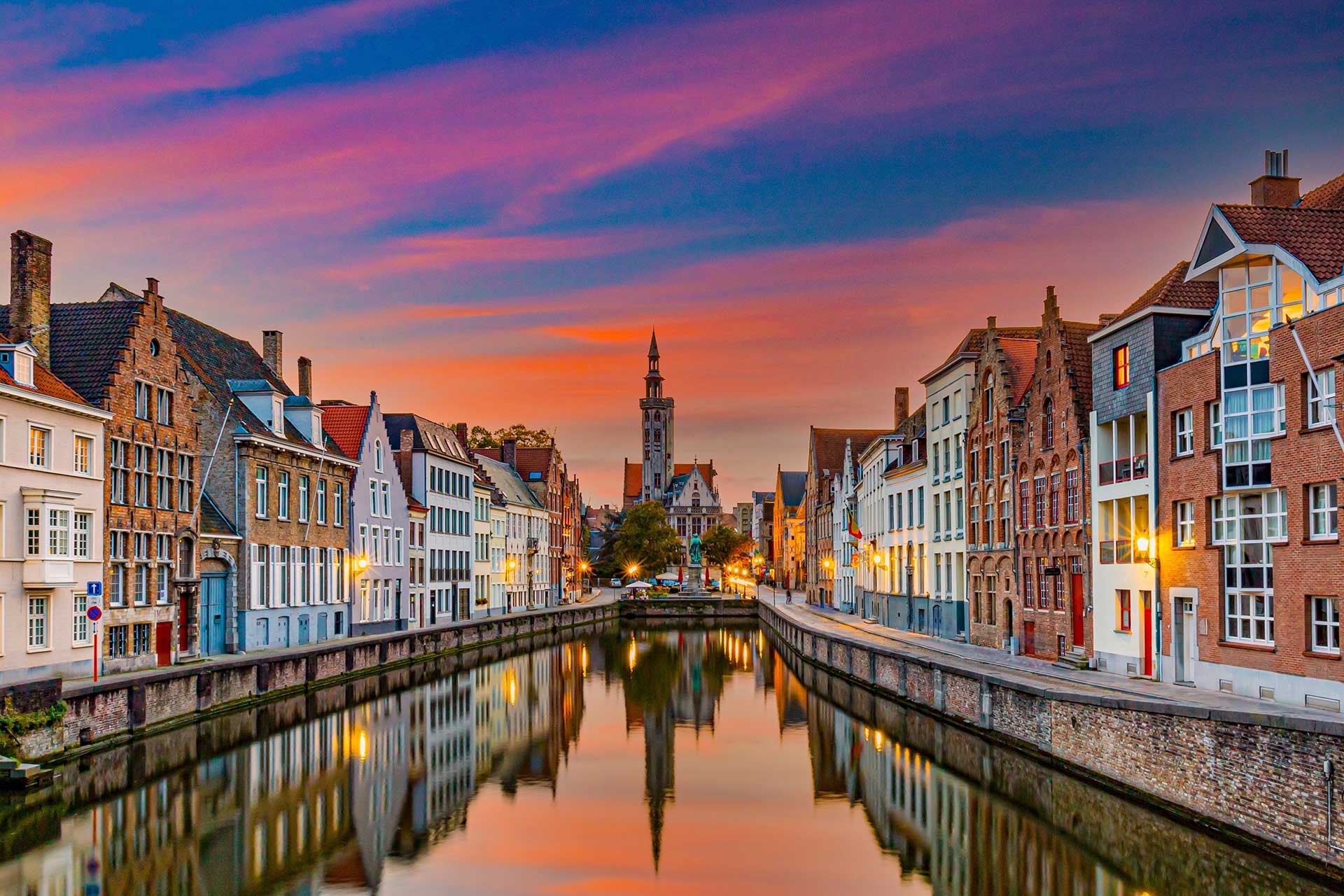
Procedure for obtaining citizenship: step-by-step guide
The process of obtaining Belgian citizenship can be divided into several steps:
- Moving and obtaining a residence permit.
First, a foreigner needs to legally enter Belgium and consolidate his/her status in the country. As a rule, the future applicant applies for a long-term visa of category D at the Belgian consulate in his/her home country (grounds – work, study, business, marriage, etc.). Upon arrival in the country within 3 months, it is necessary to apply for a residence permit (resident ID-card) in the local municipality. The residence permit is issued for 1-3 years depending on the category and can be extended if the conditions are met. After 5 years of continuous residence, a foreigner can obtain a permanent residence permit – this is a separate procedure, usually requiring proof of integration and income, similar to citizenship requirements. - Preparation of documents for citizenship.
After reaching the residency limit (5 years), the applicant collects a package of documents for naturalization. The following documents are required: birth certificate (copy translated into Dutch or French and legalized); valid identity card (foreign passport, residence permit – copies); documents confirming language skills and social integration (certificate or diploma, certificate of completion of an integration course or vocational training of at least 400 hours, certificate of permanent employment and payment of taxes, etc.); proof of economic activity (for example, certificates of tax payment as an entrepreneur or employment history). The specific list may vary depending on the category of the applicant – for example, spouses of a citizen do not provide employment documents, but instead attach a marriage certificate. All foreign documents must be properly translated and legalized. It is better to clarify the list of documents in your municipality in advance. - Filing an application with the municipality.
The application for naturalization is submitted at the place of your residence – to the municipal office (administration) of the municipality. There you fill in and sign a standard request form (a sample will be given at the place). The dossier with the collected documents is attached to the application. The application is subject to a state fee of 150 € for processing the application (payable immediately, get a receipt). The municipal officer will check the completeness of the documents – if anything is missing, you will be given time to submit the missing documents. - Review and decision.
The municipality forwards your case to the public prosecutor’s office and other competent authorities for review. Within 4 months, the public prosecutor has the right to object to naturalization – usually if they find out that you do not meet the conditions or that there are problems with your background (for example, violations of the law). If no objection is issued after 4 months, the application is automatically approved. You will receive a certificate of Belgian citizenship. Which will make you then officially a citizen. (If you receive a reasoned refusal, you can appeal against it, but it is better to avoid this by submitting a perfect dossier from the outset.) - Obtaining a passport and citizen ID card.
After naturalization, it is necessary to obtain Belgian documents. Belgian citizens use an electronic ID-card with a photo and a chip as an internal passport, while for traveling outside the EU you need the usual passport-book. Both documents can be requested from the passport office of the municipal administration in your place of residence. Your new citizenship certificates, photographs and fingerprints will be required for the issuance of your passport and ID. An internal passport (ID card) takes about 3 weeks to produce and is valid for 10 years (for adults). A passport is quicker – about 5 working days for a normal application. Once the documents are ready, you will be given them at the municipality.
Find out details about applying for an EU passport at a free consultation
Fill out the simple form and an immigration lawyer will contact you shortly
Requirements for citizenship
Let us summarize the key requirements that a foreigner needs to meet in order to successfully obtain Belgian citizenship by naturalization (standard case):
- Age from 18 years. The applicant must be of legal age under Belgian law. Children are usually granted status through their parents or automatically if the following conditions are met.
- Legal residence in Belgium for at least 5 years. Five years’ continuous residence on the basis of residence permit/permanent residence is required. Short-term stays (up to 6 months per year or up to 1 year in special situations – study, medical treatment, etc.) are allowed, but the main place of residence must remain in Belgium.
- Permanent residency status. At the time of application, the applicant must usually already have an indefinite permanent residence permit or other proof of permanent residence. Exception – special cases such as stateless persons or children.
- No violations of the law. It is important to have a clean immigration and criminal record. Serious misdemeanors, deportations, or illegal stays in the past may be reasons for denial.
- Social integration. You must prove that you have integrated into Belgian society: you know the customs and culture, you participate in the life of the community. Usually, it is proved by documents on education, participation in social programs, membership in professional organizations, etc.
- Knowledge of one of the national languages. You need to be able to speak Dutch, French or German at least at A2 level according to the CEFR. As a rule, a certificate of passing a language exam or completion of an integration course where the language was tested is required.
- Financial independence (contribution to the economy). It is required to show that you have not been a dependant, but have worked or run a business in Belgium. Specifically, the law requires proof of employment for at least 5 years (of which 468 working days paid) or payment of taxes as an entrepreneur. For spouses of citizens and parents of Belgian children, the criterion is relaxed – 234 days of work experience is sufficient, and lack of permanent employment does not disqualify. In practice, this also includes simply having a stable income so that you do not qualify for social assistance.
If all the conditions are met and the documents are in order, the chances of a positive decision are very high. According to immigrants who have already obtained a Belgian passport, professional legal support greatly facilitates the collection of documents and speeds up the process, increasing the likelihood of success. Migration specialists will help to correctly confirm that all the requirements of the citizenship law have been met and avoid unfortunate mistakes.
Terms and cost of registration
The terms of obtaining Belgian citizenship are rather long. The minimum required period of residence is 5 years. In addition, you need to include the time for the preparation of documents and the processing of the application. On average, naturalization takes about 6 years or more from the date of your move. For example, it takes 2-9 months to collect documents and apply for the first residence permit (D visa, temporary residence permit, etc.), then you live in the country for 5 years, and about 0.5 years to obtain citizenship (from application to passport issuance). In individual cases, the process may take longer – for example, if you have left the country for a long period of time or received permanent residence permit later on.
The cost is made up of several steps. Belgium does not require a large investment, but the immigrant will have to pay various state fees and related expenses:
- Long-term visa D and residence permit: consular fee and residence permit fee – total from ~138 to 343 € (depends on the category of applicant, visa type and region). For example, students pay less, entrepreneurs more.
- Biometric residence card: about 20-30 € (the price of a plastic residence permit may vary slightly by municipality; in Brussels ~25 €).
- Registration of permanent residence: ~184 € state fee for issuance of permanent residence card.
- Application for citizenship: 150 € – fixed fee for the registration of the naturalization application. If you are restoring citizenship, this fee is waived.
- Translations and legalization of documents: ~10-15 € per page of translation with apostille. Depending on the number of foreign documents, it usually comes out to about 100-200 €.
- Health insurance: about 150 € per year per person – compulsory for all residents, without it you will not be granted a residence permit. Over 5 years, it adds up to ~750 €.
- Passport and citizen ID-card: after naturalization it is necessary to get an internal passport (electronic ID-card) – ~20 € state fee, and a foreign passport – ~65 € in case of regular issuance (term of 5 days). Urgent production of a passport in 1-2 days is more expensive: 240-300 €. Both documents are valid for 5-10 years depending on the age of the holder.
In addition to official payments, consider the cost of living in Belgium during naturalization: rent, food, taxes, services. The Belgian citizenship process itself is relatively inexpensive by European standards (there is no investment fee), the main investments are your time and efforts over several years.
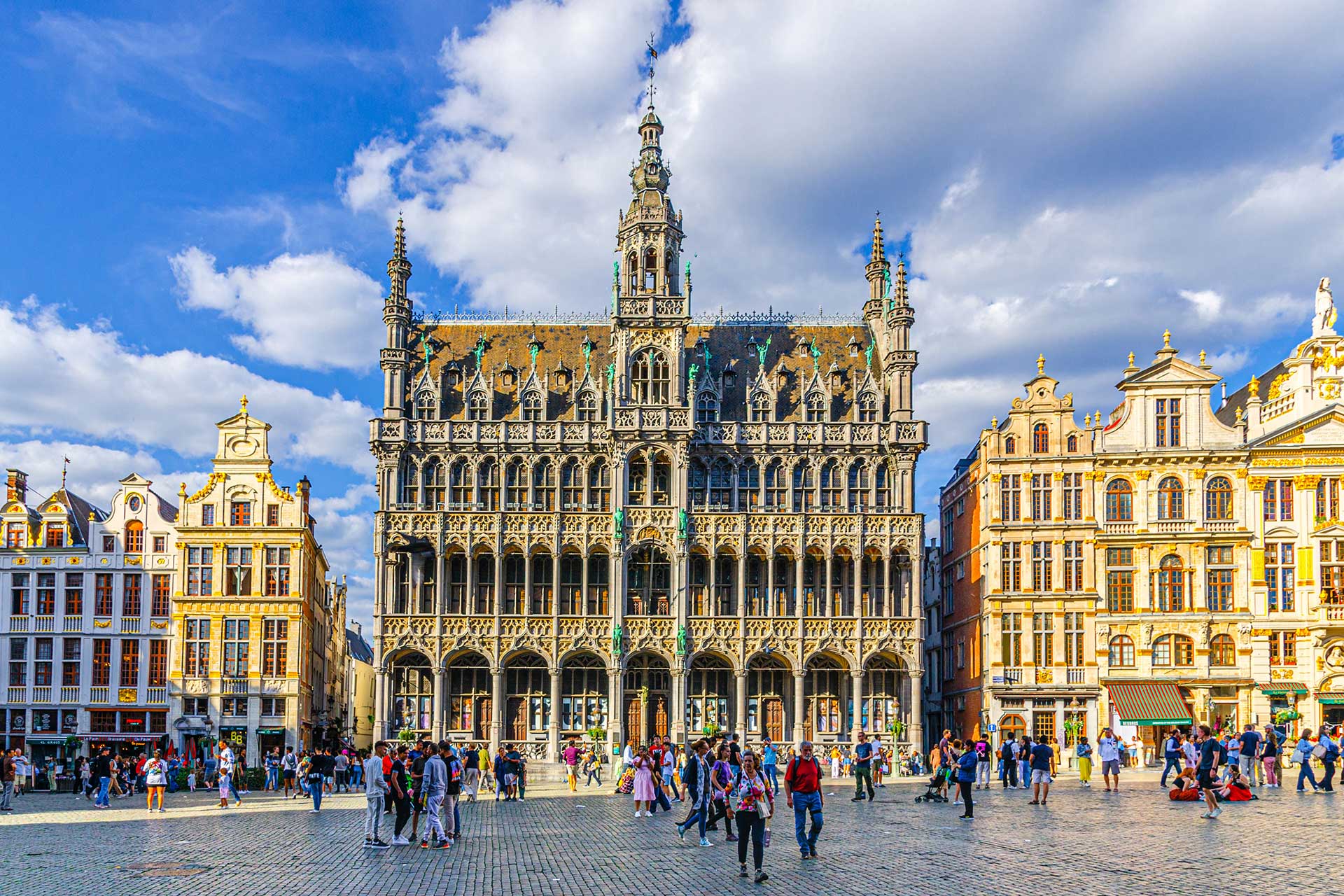
Dual citizenship: whether the first passport can be retained?
Is it allowed to have dual citizenship in Belgium? In general, yes, it is. The laws of the Kingdom of Belgium do not prohibit you from holding two or more citizenships at the same time. When you apply, you are not required to renounce your previous citizenship – you simply acquire a Belgian passport as a second citizenship while retaining your first status. The Belgian authorities do not notify your country of origin of the issuance of your new passport, so the second status remains your personal matter.
Obtaining Belgian citizenship is a real, but rather long and complicated procedure. An immigrant will have to work hard for several years: live and work in the country, learn the language, integrate into society and comply with all legal requirements. As a reward you will get one of the most privileged passports in the world and all the advantages of life in Europe.
To successfully complete the naturalization process, it is important to plan each step carefully. Start with an objective assessment of your capabilities and grounds: do you have enough resources to live in Belgium for 5 years, do you speak the language, do you meet the criteria? It is not superfluous to seek help in obtaining Belgian citizenship from experienced migration lawyers. Professionals will help you choose the best route (including alternative programs in other EU countries), prepare documents and avoid mistakes when applying. This approach will save you time and increase the chances that in a few years you will become a full-fledged citizen of Belgium.
Frequently Asked Questions about Belgian Citizenship
We have compiled answers to the most common questions about obtaining Belgian citizenship. If you did not find the information you were looking for or want to learn more about the requirements, timelines, and benefits of a Belgian passport, contact us for a free consultation.
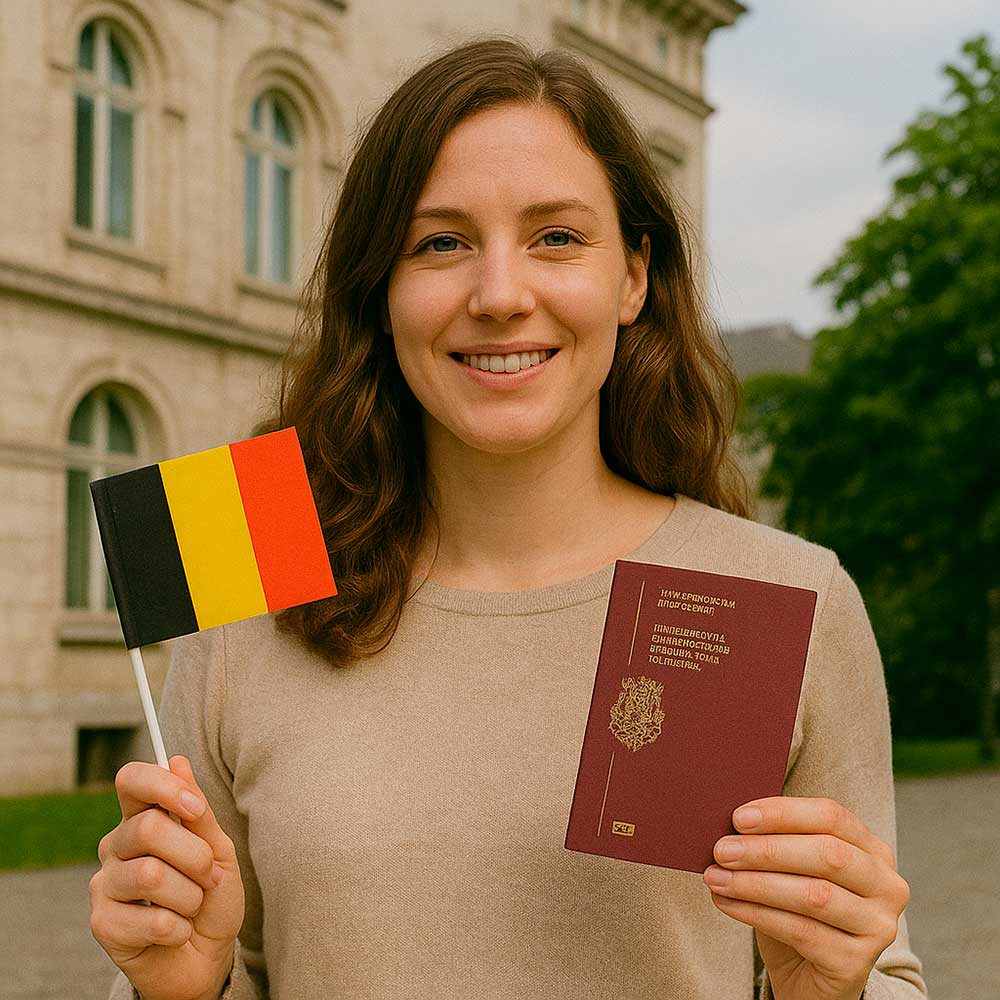
Yes, but under certain conditions. Studying only counts towards the period of residence if you have been officially registered as a resident and have not violated the conditions of residence. For example, studying on a student visa with a residence permit can count towards the five-year period, especially if you stay in Belgium after graduation and continue to live legally.
The D (national) visa authorizes entry with the intention of obtaining a residence permit, but the five-year period starts only from the date of issuance of the residence card, not from the date of entry. It is therefore important to apply for a residence permit as soon as possible after arrival, otherwise part of the period will be lost.
Only partially. If you have been granted refugee status or subsidiary protection, the period from the time you applied for protection to the time you were granted status can be counted towards your total five years of service, but only if you were legally present and registered during that time. However, if you are eventually refused asylum, this period is not counted at all.
Yes, if you can prove that you have actively participated in the life of society. For example, volunteer activities, paid internships, participation in community projects, even without a formal employment contract, can be counted as social and professional integration. But in this case, additional justification and confirmation from the host organization is required.
Yes, but there are restrictions. Standard naturalization requires 5 years of continuous residence in Belgium. Short-term departures (up to 6 months per year or up to 1 year for a valid reason) are allowed, but if you have been away for a long time or officially deregistered, the period may “reset”. Exception – persons who have lived in Belgium for 10 years: they can have interruptions if deep integration is proven.
In Belgium, you can normally apply for citizenship after 5 years of legal residence with proof of economic and social integration. Without strong integration ties, the period extends to 10 years of residence.
Marriage to a Belgian citizen does not grant automatic citizenship. You may apply after 5 years of legal residence in Belgium while living together, provided you show economic participation and social integration.
